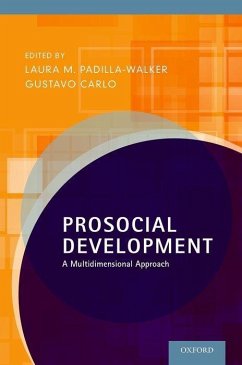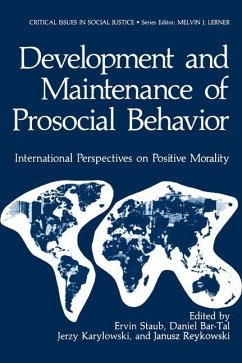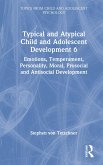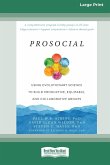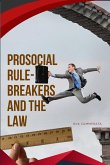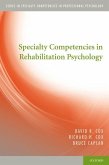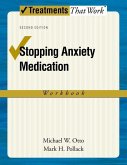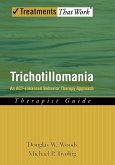Prosocial Development
A Multidimensional Approach
Herausgeber: Padilla-Walker, Laura M; Carlo, Gustavo
Schade – dieser Artikel ist leider ausverkauft. Sobald wir wissen, ob und wann der Artikel wieder verfügbar ist, informieren wir Sie an dieser Stelle.
Prosocial Development
A Multidimensional Approach
Herausgeber: Padilla-Walker, Laura M; Carlo, Gustavo
- Broschiertes Buch
- Merkliste
- Auf die Merkliste
- Bewerten Bewerten
- Teilen
- Produkt teilen
- Produkterinnerung
- Produkterinnerung
Prosocial behavior--broadly defined as voluntary action intended to help or benefit another--has been associated with positive outcomes across the lifespan. Children with a more prosocial orientation are better liked and trusted by their peers, have a higher status in peer groups, are better at maintaining friendships, demonstrate better self regulation, empathy, and social cognitive skills, and excel in academics. Researchers have shown that prosocial behaviors correlate to lower rates of school suspension and drop-out, teen pregnancy, substance use, aggression, and delinquency. These…mehr
Andere Kunden interessierten sich auch für
![Development and Maintenance of Prosocial Behavior Development and Maintenance of Prosocial Behavior]() Development and Maintenance of Prosocial Behavior81,99 €
Development and Maintenance of Prosocial Behavior81,99 €![Typical and Atypical Child and Adolescent Development 6 Emotions, Temperament, Personality, Moral, Prosocial and Antisocial Development Typical and Atypical Child and Adolescent Development 6 Emotions, Temperament, Personality, Moral, Prosocial and Antisocial Development]() Stephen Von TetzchnerTypical and Atypical Child and Adolescent Development 6 Emotions, Temperament, Personality, Moral, Prosocial and Antisocial Development198,99 €
Stephen Von TetzchnerTypical and Atypical Child and Adolescent Development 6 Emotions, Temperament, Personality, Moral, Prosocial and Antisocial Development198,99 €![Prosocial Prosocial]() Paul W. B. AtkinsProsocial51,99 €
Paul W. B. AtkinsProsocial51,99 €![Prosocial Rule-Breakers and the Law Prosocial Rule-Breakers and the Law]() Ova CummerataProsocial Rule-Breakers and the Law23,99 €
Ova CummerataProsocial Rule-Breakers and the Law23,99 €![Specialty Competencies in Rehabilitation Psychology Specialty Competencies in Rehabilitation Psychology]() David R CoxSpecialty Competencies in Rehabilitation Psychology65,99 €
David R CoxSpecialty Competencies in Rehabilitation Psychology65,99 €![Stopping Anxiety Medication Workbook Stopping Anxiety Medication Workbook]() Michael W. OttoStopping Anxiety Medication Workbook35,99 €
Michael W. OttoStopping Anxiety Medication Workbook35,99 €![Trichotillomania Trichotillomania]() Douglas W. WoodsTrichotillomania52,99 €
Douglas W. WoodsTrichotillomania52,99 €-
-
Prosocial behavior--broadly defined as voluntary action intended to help or benefit another--has been associated with positive outcomes across the lifespan. Children with a more prosocial orientation are better liked and trusted by their peers, have a higher status in peer groups, are better at maintaining friendships, demonstrate better self regulation, empathy, and social cognitive skills, and excel in academics. Researchers have shown that prosocial behaviors correlate to lower rates of school suspension and drop-out, teen pregnancy, substance use, aggression, and delinquency. These positive effects speak to the value of prosocial behavior during formative years.
Produktdetails
- Produktdetails
- Verlag: Oxford University Press
- Seitenzahl: 490
- Erscheinungstermin: 14. Januar 2016
- Englisch
- Abmessung: 234mm x 156mm x 29mm
- Gewicht: 827g
- ISBN-13: 9780190499068
- ISBN-10: 0190499060
- Artikelnr.: 47863664
- Herstellerkennzeichnung
- Libri GmbH
- Europaallee 1
- 36244 Bad Hersfeld
- gpsr@libri.de
- Verlag: Oxford University Press
- Seitenzahl: 490
- Erscheinungstermin: 14. Januar 2016
- Englisch
- Abmessung: 234mm x 156mm x 29mm
- Gewicht: 827g
- ISBN-13: 9780190499068
- ISBN-10: 0190499060
- Artikelnr.: 47863664
- Herstellerkennzeichnung
- Libri GmbH
- Europaallee 1
- 36244 Bad Hersfeld
- gpsr@libri.de
Laura Padilla-Walker is an Associate Professor in the School of Family Life at Brigham Young University. Her research focuses on the parent-child relationship as it relates to prosocial and moral development during adolescence and emerging adulthood. Dr. Padilla-Walker has published over 50 peer-reviewed articles and book chapters. Gustavo Carlo is the Millsap Professor of Diversity and Multicultural Studies in Human Development and Family Studies at the University of Missouri. His primary interests are the parenting, personality, and sociocultural correlates of prosocial and moral behaviors. Dr. Carlo has published well over 100 peer-reviewed articles and book chapters, and has co-edited several volumes.
* Section 1: Overview of Prosocial Behavior
* Chapter 1: The Study of Prosocial Behavior: Past, Present, and Future
* Laura M. Padilla-Walker and Gustavo Carlo
* Chapter 2: Multidimensionality of Prosocial Behavior: Re-thinking the
Conceptualization and Development of Prosocial Behavior
* Nancy Eisenberg and Tracy L. Spinrad
* Section 2: Biological Perspectives
* Chapter 3: Evolution, Prosocial Behavior, and Altruism: A Roadmap for
Understanding Where the Proximate Meets the Ultimate
* Patricia H. Hawley
* Chapter 4: Parental and Genetic Contributions to Prosocial Behavior
during Childhood
* Keren Fortuna and Ariel Knafo
* Chapter 5: The Prosocial Brain: Perceiving Others in Need, and Acting
on It
* Alek Chakroff and Liane Young
* Chapter 6: Autonomic regulation, Polyvagal Theory, and Children's
Prosocial Development
* Paul D. Hastings and Jonas G. Miller
* Section 3: Socialization Perspectives
* Chapter 7: Parental Socialization of Prosocial Behavior: A
Multidimensional Approach
* Laura M. Padilla-Walker
* Chapter 8: Sweetness on the Screen: A Multidimensional View of
Prosocial Behavior in
* Media
* Sarah M. Coyne and Nathan J. Smith
* Chapter 9: Prosocial Behavior and Peer Relations in Adolescence
* Kathryn R. Wentzel
* Chapter 10: Linking Grandparent Involvement with the Development of
Prosocial Behavior in Adolescents
* Jeremy B. Yorgason and Kathryn B. Gustafson
* Section 4: Cultural and Contextual Perspectives
* Chapter 11: The Cultural Contexts of Children's Prosocial Behaviors
* Maria Rosario T. de Guzman, Anh Do, and Car Mun Kok
* Chapter 12: Predicting Prosocial Tendencies Among Mexican American
Youth: The Intersection of Cultural Values, Social Cognitions, and
Social Emotions
* Gustavo Carlo, George P. Knight, Camille D. Basilio, and Alexandra
Davis
* Chapter 13: Cross-Cultural Evidence of Multidimensional Prosocial
Behaviors: An Examination of the Prosocial Tendencies Measure (PTM)
* Meredith McGinley, Deanna Opal, María Cristina Richaud, and Belén
Mesurado
* Chapter 14: Educating Students to be Prosocial at School
* Christi Bergin
* Section 5: Specific Targets and Types of Prosocial Behavior
* Chapter 15: Parents as Recipients of Adolescent Prosocial Behavior
* Mary B. Eberly Lewis
* Chapter 16: Prosocial Behaviors Toward Siblings and Grandparents
* Asiye Kumru and Bilge Yagmurlu
* Chapter 17: Prosocial Behaviors in Early Childhood: Helping Others,
Responding to the Distress of Others, and Working with Others
* Deborah Laible and Erin Karahuta
* Chapter 18: Adopting a Multidimensional Perspective on College
Students' Prosocial Behaviors
* Brandy A. Randall and Jennifer R. Wenner
* Chapter 19: The Social Construction of Volunteering
* Daniel Hart and Michael Sulik
* Chapter 20: Early Generativity and Types of Civic Engagement in
Adolescence and Emerging Adulthood
* Michael W. Pratt and Heather L. Lawford
* Chapter 21: Prosocial Exemplarity in Adolescence and Adulthood
* Lawrence J. Walker
* Chapter 1: The Study of Prosocial Behavior: Past, Present, and Future
* Laura M. Padilla-Walker and Gustavo Carlo
* Chapter 2: Multidimensionality of Prosocial Behavior: Re-thinking the
Conceptualization and Development of Prosocial Behavior
* Nancy Eisenberg and Tracy L. Spinrad
* Section 2: Biological Perspectives
* Chapter 3: Evolution, Prosocial Behavior, and Altruism: A Roadmap for
Understanding Where the Proximate Meets the Ultimate
* Patricia H. Hawley
* Chapter 4: Parental and Genetic Contributions to Prosocial Behavior
during Childhood
* Keren Fortuna and Ariel Knafo
* Chapter 5: The Prosocial Brain: Perceiving Others in Need, and Acting
on It
* Alek Chakroff and Liane Young
* Chapter 6: Autonomic regulation, Polyvagal Theory, and Children's
Prosocial Development
* Paul D. Hastings and Jonas G. Miller
* Section 3: Socialization Perspectives
* Chapter 7: Parental Socialization of Prosocial Behavior: A
Multidimensional Approach
* Laura M. Padilla-Walker
* Chapter 8: Sweetness on the Screen: A Multidimensional View of
Prosocial Behavior in
* Media
* Sarah M. Coyne and Nathan J. Smith
* Chapter 9: Prosocial Behavior and Peer Relations in Adolescence
* Kathryn R. Wentzel
* Chapter 10: Linking Grandparent Involvement with the Development of
Prosocial Behavior in Adolescents
* Jeremy B. Yorgason and Kathryn B. Gustafson
* Section 4: Cultural and Contextual Perspectives
* Chapter 11: The Cultural Contexts of Children's Prosocial Behaviors
* Maria Rosario T. de Guzman, Anh Do, and Car Mun Kok
* Chapter 12: Predicting Prosocial Tendencies Among Mexican American
Youth: The Intersection of Cultural Values, Social Cognitions, and
Social Emotions
* Gustavo Carlo, George P. Knight, Camille D. Basilio, and Alexandra
Davis
* Chapter 13: Cross-Cultural Evidence of Multidimensional Prosocial
Behaviors: An Examination of the Prosocial Tendencies Measure (PTM)
* Meredith McGinley, Deanna Opal, María Cristina Richaud, and Belén
Mesurado
* Chapter 14: Educating Students to be Prosocial at School
* Christi Bergin
* Section 5: Specific Targets and Types of Prosocial Behavior
* Chapter 15: Parents as Recipients of Adolescent Prosocial Behavior
* Mary B. Eberly Lewis
* Chapter 16: Prosocial Behaviors Toward Siblings and Grandparents
* Asiye Kumru and Bilge Yagmurlu
* Chapter 17: Prosocial Behaviors in Early Childhood: Helping Others,
Responding to the Distress of Others, and Working with Others
* Deborah Laible and Erin Karahuta
* Chapter 18: Adopting a Multidimensional Perspective on College
Students' Prosocial Behaviors
* Brandy A. Randall and Jennifer R. Wenner
* Chapter 19: The Social Construction of Volunteering
* Daniel Hart and Michael Sulik
* Chapter 20: Early Generativity and Types of Civic Engagement in
Adolescence and Emerging Adulthood
* Michael W. Pratt and Heather L. Lawford
* Chapter 21: Prosocial Exemplarity in Adolescence and Adulthood
* Lawrence J. Walker
* Section 1: Overview of Prosocial Behavior
* Chapter 1: The Study of Prosocial Behavior: Past, Present, and Future
* Laura M. Padilla-Walker and Gustavo Carlo
* Chapter 2: Multidimensionality of Prosocial Behavior: Re-thinking the
Conceptualization and Development of Prosocial Behavior
* Nancy Eisenberg and Tracy L. Spinrad
* Section 2: Biological Perspectives
* Chapter 3: Evolution, Prosocial Behavior, and Altruism: A Roadmap for
Understanding Where the Proximate Meets the Ultimate
* Patricia H. Hawley
* Chapter 4: Parental and Genetic Contributions to Prosocial Behavior
during Childhood
* Keren Fortuna and Ariel Knafo
* Chapter 5: The Prosocial Brain: Perceiving Others in Need, and Acting
on It
* Alek Chakroff and Liane Young
* Chapter 6: Autonomic regulation, Polyvagal Theory, and Children's
Prosocial Development
* Paul D. Hastings and Jonas G. Miller
* Section 3: Socialization Perspectives
* Chapter 7: Parental Socialization of Prosocial Behavior: A
Multidimensional Approach
* Laura M. Padilla-Walker
* Chapter 8: Sweetness on the Screen: A Multidimensional View of
Prosocial Behavior in
* Media
* Sarah M. Coyne and Nathan J. Smith
* Chapter 9: Prosocial Behavior and Peer Relations in Adolescence
* Kathryn R. Wentzel
* Chapter 10: Linking Grandparent Involvement with the Development of
Prosocial Behavior in Adolescents
* Jeremy B. Yorgason and Kathryn B. Gustafson
* Section 4: Cultural and Contextual Perspectives
* Chapter 11: The Cultural Contexts of Children's Prosocial Behaviors
* Maria Rosario T. de Guzman, Anh Do, and Car Mun Kok
* Chapter 12: Predicting Prosocial Tendencies Among Mexican American
Youth: The Intersection of Cultural Values, Social Cognitions, and
Social Emotions
* Gustavo Carlo, George P. Knight, Camille D. Basilio, and Alexandra
Davis
* Chapter 13: Cross-Cultural Evidence of Multidimensional Prosocial
Behaviors: An Examination of the Prosocial Tendencies Measure (PTM)
* Meredith McGinley, Deanna Opal, María Cristina Richaud, and Belén
Mesurado
* Chapter 14: Educating Students to be Prosocial at School
* Christi Bergin
* Section 5: Specific Targets and Types of Prosocial Behavior
* Chapter 15: Parents as Recipients of Adolescent Prosocial Behavior
* Mary B. Eberly Lewis
* Chapter 16: Prosocial Behaviors Toward Siblings and Grandparents
* Asiye Kumru and Bilge Yagmurlu
* Chapter 17: Prosocial Behaviors in Early Childhood: Helping Others,
Responding to the Distress of Others, and Working with Others
* Deborah Laible and Erin Karahuta
* Chapter 18: Adopting a Multidimensional Perspective on College
Students' Prosocial Behaviors
* Brandy A. Randall and Jennifer R. Wenner
* Chapter 19: The Social Construction of Volunteering
* Daniel Hart and Michael Sulik
* Chapter 20: Early Generativity and Types of Civic Engagement in
Adolescence and Emerging Adulthood
* Michael W. Pratt and Heather L. Lawford
* Chapter 21: Prosocial Exemplarity in Adolescence and Adulthood
* Lawrence J. Walker
* Chapter 1: The Study of Prosocial Behavior: Past, Present, and Future
* Laura M. Padilla-Walker and Gustavo Carlo
* Chapter 2: Multidimensionality of Prosocial Behavior: Re-thinking the
Conceptualization and Development of Prosocial Behavior
* Nancy Eisenberg and Tracy L. Spinrad
* Section 2: Biological Perspectives
* Chapter 3: Evolution, Prosocial Behavior, and Altruism: A Roadmap for
Understanding Where the Proximate Meets the Ultimate
* Patricia H. Hawley
* Chapter 4: Parental and Genetic Contributions to Prosocial Behavior
during Childhood
* Keren Fortuna and Ariel Knafo
* Chapter 5: The Prosocial Brain: Perceiving Others in Need, and Acting
on It
* Alek Chakroff and Liane Young
* Chapter 6: Autonomic regulation, Polyvagal Theory, and Children's
Prosocial Development
* Paul D. Hastings and Jonas G. Miller
* Section 3: Socialization Perspectives
* Chapter 7: Parental Socialization of Prosocial Behavior: A
Multidimensional Approach
* Laura M. Padilla-Walker
* Chapter 8: Sweetness on the Screen: A Multidimensional View of
Prosocial Behavior in
* Media
* Sarah M. Coyne and Nathan J. Smith
* Chapter 9: Prosocial Behavior and Peer Relations in Adolescence
* Kathryn R. Wentzel
* Chapter 10: Linking Grandparent Involvement with the Development of
Prosocial Behavior in Adolescents
* Jeremy B. Yorgason and Kathryn B. Gustafson
* Section 4: Cultural and Contextual Perspectives
* Chapter 11: The Cultural Contexts of Children's Prosocial Behaviors
* Maria Rosario T. de Guzman, Anh Do, and Car Mun Kok
* Chapter 12: Predicting Prosocial Tendencies Among Mexican American
Youth: The Intersection of Cultural Values, Social Cognitions, and
Social Emotions
* Gustavo Carlo, George P. Knight, Camille D. Basilio, and Alexandra
Davis
* Chapter 13: Cross-Cultural Evidence of Multidimensional Prosocial
Behaviors: An Examination of the Prosocial Tendencies Measure (PTM)
* Meredith McGinley, Deanna Opal, María Cristina Richaud, and Belén
Mesurado
* Chapter 14: Educating Students to be Prosocial at School
* Christi Bergin
* Section 5: Specific Targets and Types of Prosocial Behavior
* Chapter 15: Parents as Recipients of Adolescent Prosocial Behavior
* Mary B. Eberly Lewis
* Chapter 16: Prosocial Behaviors Toward Siblings and Grandparents
* Asiye Kumru and Bilge Yagmurlu
* Chapter 17: Prosocial Behaviors in Early Childhood: Helping Others,
Responding to the Distress of Others, and Working with Others
* Deborah Laible and Erin Karahuta
* Chapter 18: Adopting a Multidimensional Perspective on College
Students' Prosocial Behaviors
* Brandy A. Randall and Jennifer R. Wenner
* Chapter 19: The Social Construction of Volunteering
* Daniel Hart and Michael Sulik
* Chapter 20: Early Generativity and Types of Civic Engagement in
Adolescence and Emerging Adulthood
* Michael W. Pratt and Heather L. Lawford
* Chapter 21: Prosocial Exemplarity in Adolescence and Adulthood
* Lawrence J. Walker

